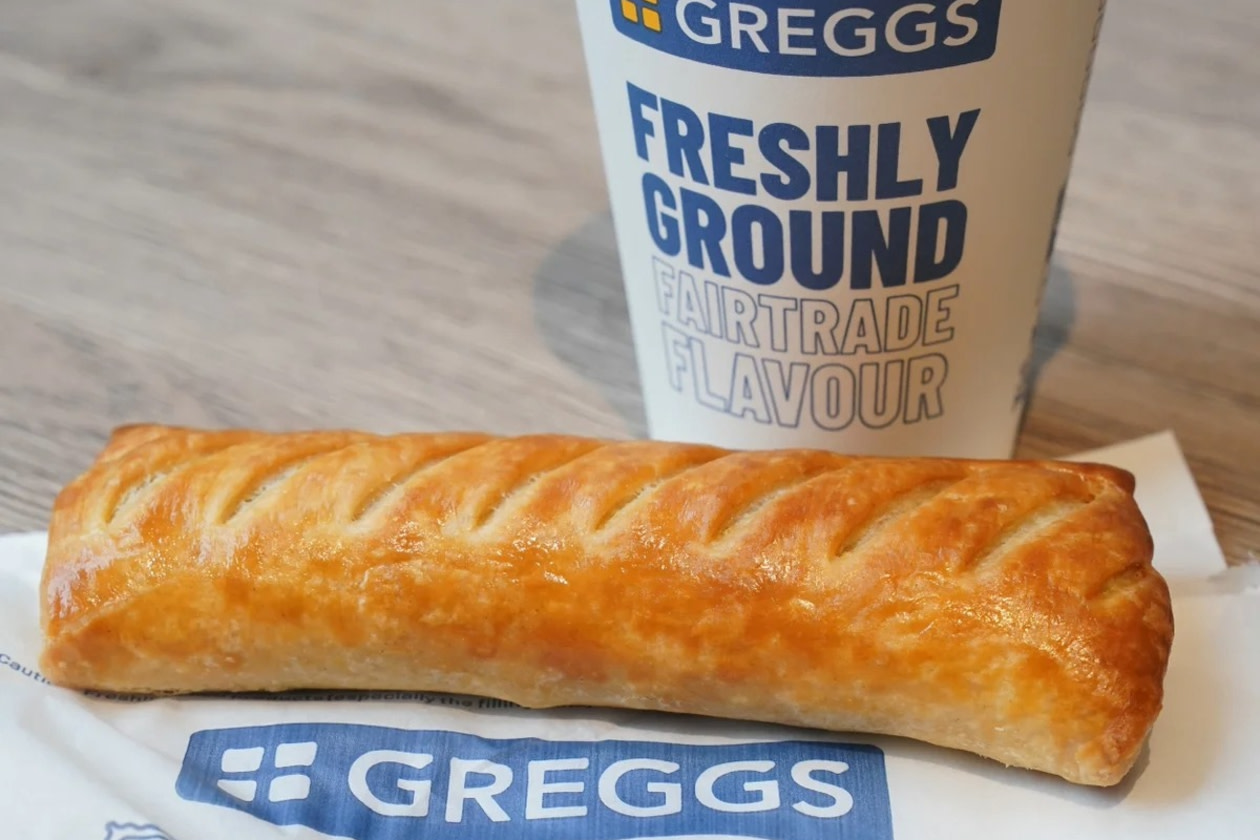Greggs delivered 11.3% revenue growth in 2024 to a record £2.0bn, like-for-like sales growth was 5.5% (6.3% expected). Total sales growth was slower in the fourth quarter at 7.7%, with like-for-like growth of 2.5% (5.4% expected).
Management called out lower consumer confidence and the resulting drop in high-street footfall as a key challenge over the second half of 2024.
Across the year there were 145 net new shop openings, in line with targets, and 2,618 shops trading as of 28 December 2024. Greggs is targeting 140-150 net new openings in 2025.
Year-end net cash came in at £125mn (2023: £195mn).
Despite weaker sales, management made no change to full-year 2024 profit guidance. Current consensus points to just shy of 12% growth in pre-tax profit to £188mn.
The shares fell 10.0% in early trading.
Our view
Markets haven’t taken too kindly to Gregg’s recent trading update as the bakery giant flagged lower consumer confidence as a key challenge in the final quarter. Good cost management helped offset the impact of lower revenue, so there were no changes to full-year profit guidance, but it raises valid questions about the growth outlook for 2025.
The sharp reaction is in part because such a high bar has been set, a testament to the job management has done over the past year or so.
The number of shops is set to rise to 3,000 over the next few years, the menus and stores have been reset, and market share is at an all-time high. Relying on high-street shoppers and commuter traffic isn't sustainable, so we're particularly supportive of plans to increase its presence at travel locations (like train stations and airports).
Greggs has worked hard over the last few years to increase the number of franchised shops to around 20%. We're supportive of this model. Compared to the company-owned sites, these locations aren't on the hook for day-to-day costs. There are other growth levers, too, including bolstering delivery services (it now partners with both Just Eat and Uber Eats), click-and-collect, and opening later to attract more evening customers.
There's a real opportunity at hand, and Greggs is doing all the right things. The evening food-to-go market is huge and an area it’s barely scratched the surface of. Just under half of Greggs shops now serve until 7 p.m. or later, and with new hot food being trialled this year, they’re giving customers more reason to visit them throughout the day.
One of Greggs' key strengths is that it's a lower-value treat. That makes it more resilient during spells when incomes are being flexed. Leaning into that through the loyalty app, there’s now another valuable avenue to drive sales growth.
The cost picture has taken a turn in recent months following the UK Budget where changes to company taxes are set to rack up costs in the tens of millions. Managing costs in 2025 is going to be a key challenge.
The growing dividend is an added attraction, though nothing is guaranteed. The cash hoard on the balance sheet is expected to be flexed to cover increased growth investment, but that’s precisely what it’s there for.
We continue to be impressed and there's a lot to like about Greggs’ proposition, including its list of growth drivers. This hasn’t gone unnoticed by the market though, and the valuation requires it to keep delivering quarter after quarter. As we’ve seen, any missteps will be punished.
Environmental, social and governance (ESG) risk
Consumer services companies are medium-risk in terms of ESG, and very few companies are excelling at managing them. That leaves plenty of opportunity for forward-thinking firms. The primary risk-driver is product governance. The impact of their products on society, labour relations and environmental concerns are also key risks to monitor.
According to Sustainalytics, Greggs’ management of material ESG issues is strong.
Greggs’ overall ESG reporting is not up to par with leading reporting standards, though it has appointed a board-level responsibility for overseeing ESG issues. A very strong environmental policy and a decent whistleblower programme are in place. Executive-level compensation could benefit from some elements being explicitly linked to sustainability performance targets.
Greggs key facts
All ratios are sourced from Refinitiv, based on previous day’s closing values. Please remember yields are variable and not a reliable indicator of future income. Keep in mind key figures shouldn’t be looked at on their own – it’s important to understand the big picture.
This article is not advice or a recommendation to buy, sell or hold any investment.No view is given on the present or future value or price of any investment, and investors should form their own view on any proposed investment.This article has not been prepared in accordance with legal requirements designed to promote the independence of investment research and is considered a marketing communication.Non - independent research is not subject to FCA rules prohibiting dealing ahead of research, however HL has put controls in place(including dealing restrictions, physical and information barriers) to manage potential conflicts of interest presented by such dealing.Please see our full non - independent research disclosure for more information.


